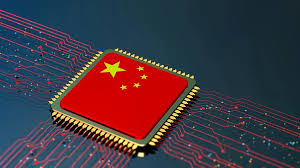A consortium of leading Chinese technology companies has unveiled a new firmware standard known as UBIOS (Unified Basic Input/Output System), designed to replace both UEFI and the traditional BIOS. The move signals a major leap toward technological self-sufficiency as China accelerates efforts to reduce dependence on Western computing standards.
State-Backed Effort to Build a Domestic Firmware Ecosystem
According to a report by Tom’s Hardware, UBIOS was developed under a state-supported initiative aimed at establishing a fully domestic firmware ecosystem. Like UEFI, the new system will handle core startup processes—initializing hardware and connecting it with the operating system—but all under Chinese governance and intellectual property control.
The introduction of UBIOS is viewed as part of China’s long-term strategy to build an independent computing foundation encompassing chips, operating systems, and core firmware. The framework is expected to play a critical role in national cybersecurity and technological sovereignty objectives.
Testing Underway with Local Manufacturers
Early testing of UBIOS has reportedly begun with Chinese chipmakers and motherboard manufacturers. The consortium plans a phased rollout across the country over the coming years, with adoption expected in PCs, servers, and embedded systems designed for domestic use.
A Strategic Alternative to Western Firmware Standards
Industry analysts say UBIOS represents a significant milestone in China’s efforts to create independent hardware and software ecosystems. By replacing UEFI—originally developed by Intel and other Western firms—China aims to reduce exposure to potential supply chain vulnerabilities and external dependencies.
“This move aligns with China’s broader ‘self-reliance in tech’ initiative, covering everything from semiconductors to operating systems,” analysts noted. “UBIOS could eventually become a cornerstone for secure, fully sovereign computing platforms.”
Global Implications for the Tech Industry
The introduction of UBIOS could have geopolitical and market implications, as it signals China’s determination to define its own technical standards. Experts suggest that widespread adoption of UBIOS may challenge the dominance of UEFI and influence how global manufacturers engage with China’s fast-evolving tech ecosystem.
While the system’s technical details remain limited, UBIOS’s rollout marks a pivotal moment in the evolution of computing firmware—one that may reshape the landscape of global technology standards in the years ahead.

